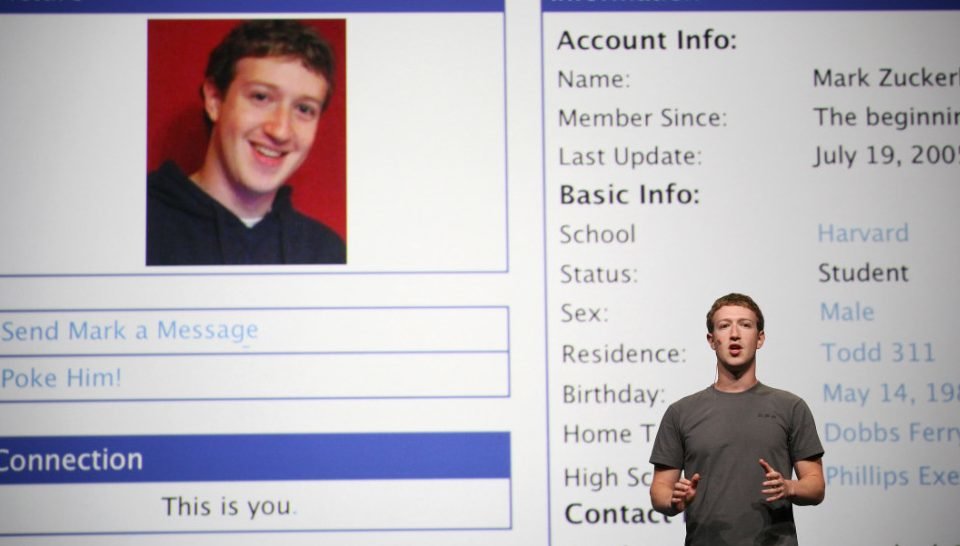
Account Recovery Deactivated, Facebook Says Public Profiles Are at Risk

Going by the recent chain of events (majority of which are unpleasant) in the social media giant company, Facebook, Mark Zuckerberg and his platform users may not be in good times ever again. The CEO and billionaire last week Wednesday released a puzzling statement, saying that most members of the Facebook community may have to consider that their information and details being made public on their profiles are rubbed.
Zuckerberg said that he believes users with definite ‘enabled’ search feature must have been affected by intruders or outsiders who would have tampered with their individual profiles.
Zuckerberg’s hypothesis
While answering questions on this issue, Zuckerberg explained that the company’s management had witnessed some scouring. He said he thinks that if a member used the privacy setting to activate his or her profile, then such member is at the risk of opening the door wide open for intruders to come in and access his or her details at one point or another.
The CEO was talking about the part of the setting where members give permission for other members to learn more about them by searching through their e-mails or mobile numbers rather than just use the name.

Third parties may be responsible for the stealing of many public details of innocent Facebook users
The executive officer of Facebook Inc technology, Mike Schroepfer, while talking on behalf of the company in one blog message that was posted earlier, shared the same opinion. Schroepfer wrote in one segment that deliberated on account discovery and search functions on the platform, that till date, the user could gain access to someone else’ contact number and emails through the ‘search’ option on Facebook to assist in finding them out.
He went on to say that this feature has really been helpful, particularly when looking for your loved ones in foreign languages that require more time and struggle to write down the person’s name in full, or in a situation where a lot of members bear the same identity. For instance, Bangladesh has issues in this area because the feature constitutes 7 percent of every search.
But, dubious users have as well misused these functions to clean or get details on the profiles of members who enabled ‘public’ feature by dropping contact numbers or emails which they have posted before through the account recovery and search. Going by the statistics and the level of tact in the operations of these nefarious individuals, which the management has witnessed, Schroepfer believes that majority of the Facebook community members could be affected by having their profiles put on ‘public’ mode scraped through this method.
Due to this malicious activity, the technology officer announced that the platform operators have deactivated that function. They are also working on effecting some changes in the aspect of account recovery to cut down the possibility of rubbing people’s profiles, Schroepfer concluded.

Facebook CEO made it clear that it’s wise to suspect that another party gained entry into your details and profiles through this means.
Not a positive sign
However, this recent information is related to the claims being made by the company that Cambridge Analytica, the database analytical company that specializes in political data operations, gained entry to the personal data belonging to more than 87 million members of Facebook community, a contrary information to the popular news that the affected people were just 50 million.
Many accusations and counter-accusations have continued to trail the company in the midst of its Cambridge Analytica scandal, while the users are being placed at the centre of it all.

The GDPR may not be enough for Facebook to clear the mess on ground
All is now clear that the privacy of Facebook users is no longer safe with all these emerging facts about stealing and scraping of details. The FTC is still waiting for Zuckerberg to grind the axe concerning the supposed 50 million users’ personal data, and the lawmakers at the Congress are also observing the situation as it unfolds.
In addition, Facebook is not ready to adopt every principle of the General Data Protection Regulation (GDPR) in its restructuring.
Now, with Zuckerberg and Schroepfer’s assertion, one may be tempted to ask for how long this will continue. If Facebook could betray its users’ trust and another set of dubious beings could add insult to the injury by wiping out profiles of fellow members, then the coming months will require deep thinking on the part of the users.
More in Investments
-
`
Streaming Giant Netflix Faces Yet Another Challenge
In the ever-evolving landscape of streaming entertainment, Netflix, once the unchallenged king of digital content, now faces a complex puzzle beyond...
December 1, 2023 -
`
Signs You Should Quit Your Current Job & Move On
You Don’t Feel Comfortable at Work Imagine spending the majority of your waking hours in a place where you feel uneasy,...
November 20, 2023 -
`
How to Adjust and Renew Your Portfolio
Investing in the financial world is like navigating an ever-changing landscape—constantly evolving, always shifting. The key to staying on track? Regularly...
November 18, 2023 -
`
Dr. Dre’s Divorce With Nicole Young: A Closer Look
When the beats of old-school hip-hop start bumping, Dr. Dre’s name reverberates in fans’ minds worldwide. Born as Andre Young, this...
November 12, 2023 -
`
Why Branded Content Is the Best Way to Connect With Your Audience
Have you ever found yourself deep in a compelling article or engrossed in a video series, only to later discover that...
November 5, 2023 -
`
Why the Gender Pay Gap Could Be Getting Worse | New Research Findings
At a time when women are making significant strides in various professional arenas, a new report throws light on a trend...
October 28, 2023 -
`
What Is a Bull Market and How Can Investors Benefit From One?
In finance, the term “bull market” is frequently used to describe a period of optimism, rising asset prices, and investor confidence....
October 19, 2023 -
`
A-List Power Couples Where the Women Make More Money
In an era of shifting gender roles and evolving definitions of success, it’s increasingly common to find celebrity couples where the...
October 15, 2023 -
`
Massive Price Cuts: Tesla Only Witnesses ‘Modest’ Sales Gain in China
Cutting Down Prices, But Not Cutting the Mustard? Summer 2023 brought with it a promise of sunshine and relaxation. For Tesla...
October 8, 2023















You must be logged in to post a comment Login